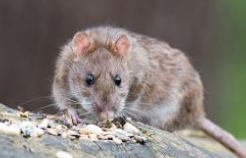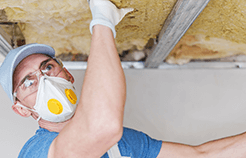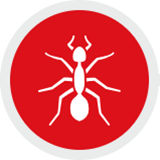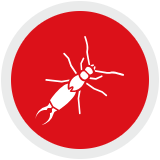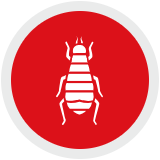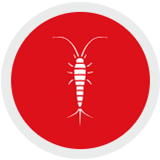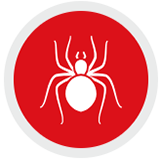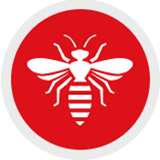Bed bugs are a persistent issue that can quickly spread if left untreated. Recognizing the early signs and symptoms of a bed bug infestation is crucial for protecting your home and ensuring quick, effective treatment. In this guide, we’ll cover how to identify bed bugs, their common symptoms, and how to detect an infestation before it becomes a major problem.
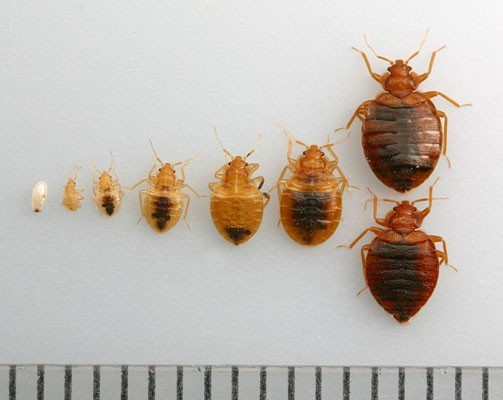
What Do Bed Bugs Look Like?
Bed bugs are small, wingless insects that feed on blood, typically at night. Here are some key features to help you identify them:
- Size: Adult bed bugs are around 4-5mm long (the size of an apple seed), while newly hatched nymphs are much smaller and harder to spot.
- Color: Reddish-brown when unfed, turning bright red after feeding.
- Shape: Oval and flat, bed bugs become more rounded after feeding.
To learn more about where bed bugs hide, check out our article on Common Bed Bug Hiding Spots, which details the specific areas to search during your inspections.
Bed Bug Symptoms
Bed bugs leave behind several signs that indicate their presence. Common symptoms include:
- Bite Marks
- Small, red, itchy welts that often appear in a line or cluster. Bites are typically painless but can cause discomfort.
- Be mindful that bites alone cannot confirm bed bugs, as fleas and mosquitoes can cause similar reactions.
- Blood Stains on Bedding
- Bed bugs often leave small bloodstains after feeding, visible on sheets or pillowcases.
- Musty Odor
- Large infestations produce a sweet, musty smell due to pheromones released by bed bugs.
- Exoskeletons and Droppings
- As bed bugs grow, they shed their skins, leaving behind pale yellow exoskeletons. Dark spots of excrement may also be visible around hiding spots.
Want to know more about bed bugs’ life stages? Explore our blog on the Life Cycle of Bed Bugs to understand their development and how infestations grow over time.
Interested in Our Pest Control Process?
Early Detection of Bed Bugs
Catching bed bugs early can prevent a full-blown infestation. Here are some key steps to help with early detection:
- Check Your Mattress and Furniture
- Inspect mattress seams, headboards, and furniture for any signs of bed bugs, like eggs or droppings.
- Look for Bed Bug Eggs
- Eggs are tiny and white, often found in hidden crevices. Although difficult to spot, their presence indicates an infestation is underway.
- Watch for Itchy Bites
- If you wake up with unexplained bites, particularly after staying in hotels or other high-traffic areas, bed bugs could be the cause.

Early detection can make a huge difference. To avoid future infestations, take a look at our tips on How to Prevent Bed Bugs, which provides helpful advice for keeping your home pest-free.
What to Do If You Find Bed Bugs
If you’ve spotted any of these signs, don’t panic—there are steps you can take to control the situation.
- Contain the Infestation: Immediately remove clutter from around your bed and wash bedding and clothing in hot water. Vacuum your mattress, furniture, and floors regularly.
- Seek Professional Help: Bed bugs are notoriously difficult to eliminate without professional intervention. Read more about Professional Bed Bug Treatments and why hiring an expert is often the best solution.
For those interested in trying home remedies, visit our guide on DIY Bed Bug Treatments to explore safe and effective methods.

External Resources for Further Guidance
For detailed local advice, you can explore resources from Seattle Housing’s Pest Control Guide, which covers key information on identifying and preventing bed bugs. You may also find useful tips from King County’s Bed Bug Detection Guide on spotting infestations and the necessary steps for control.
Final Thoughts
Identifying bed bugs early on is essential for preventing a larger problem down the road. With proper knowledge of the signs, symptoms, and early detection methods, you can protect your home and family. If you suspect an infestation or want to take preventive measures, don’t hesitate to reach out to the professionals at Eastside Exterminators. We’re here to help you reclaim your space from bed bugs.

 (425) 318-7912
(425) 318-7912
 MY ACCOUNT
MY ACCOUNT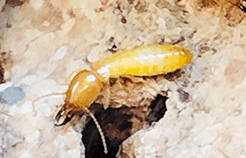
 425-318-7912
425-318-7912